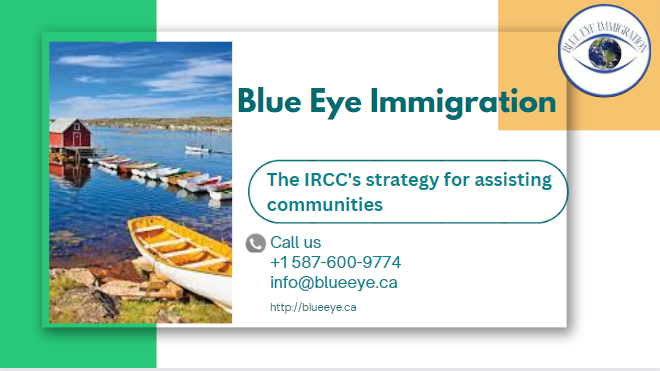Plans to enhance Canada’s immigration system were unveiled on October 31st by Immigration Minister Marc Miller. Throughout the year, Immigration, Refugees and Citizenship Canada (IRCC) has held public and stakeholder consultations to assist shape reforms and fortify the immigration system.
An Immigration System for Canada’s Future, the IRCC’s new immigration policy, has been implemented by taking these suggestions into consideration.
The strategy outlines guidelines for better integrating the demands of the labor market with the immigration system, updating the system to make it easier for newcomers to submit and follow their applications, raising the bar for IRCC service, encouraging francophone immigration in Canadian communities, and supporting the recruitment and retention of newcomers in smaller communities.
A component of the plan is taking into account the services and assistance that both Canadians and immigrants need, such as housing and healthcare. Additionally, the strategy notes that distributing the advantages of immigration around the nation and into local towns is essential to a successful immigrant plan.
Which projects are going to help communities?
Planning Canada’s immigration levels should take into account housing and healthcare needs, among other crucial services, according to one of the IRCC’s primary goals.
The number of new permanent residents that Canada will accept in the upcoming years is determined annually by the IRCC. In order for the federal government, provinces, territories, and municipalities to combine housing, health care, and infrastructure with these figures, a more integrated strategy must be developed.
Additionally, the IRCC seeks to investigate ways to more effectively focus assistance for the integration and settlement of recent arrivals. “We want to provide the right services at the right time,” the approach states. While doing this, the IRCC will search for chances to provide funding for projects that improve community relations and expand services in mid-sized, rural, and northern regions. Additionally, the IRCC wants to broaden the services provided by Francophones to immigrants who are Francophone in official language minority outside of Quebec, as well as enhance access to digital settlement services.
In order to promote more affordable homes, IRCC also intends to investigate methods that would maximize the investment made by immigrants. The IRCC will investigate and modify an immigration route for foreign nationals who are dedicated to investing in and developing new homes in Canada in order to achieve this.
Lastly, the IRCC wants to investigate ways to improve immigration within regions. Developing a deeper comprehension of the distinct requirements and advantages of smaller, rural, Francophone minority communities is one aspect of this.
To do this, IRCC will investigate the possibilities of extending the Rural and Northern Immigration Pilot (RNIP) to other towns nationwide and work to make it a permanent program.
The RNIP is a community-driven initiative that offers a permanent residency pathway to foreign nationals who choose to live and work in smaller towns, therefore bringing the advantages of immigration to these areas.
In order to strengthen Francophone minority groups and give them more demographic weight, the IRCC will also create a new Francophone Immigration Policy. The policy will facilitate the settling and integration of French-speaking immigrants in these minority populations by increasing promotion and selection efforts.
To do this, IRCC will investigate the possibilities of extending the Rural and Northern Immigration Pilot (RNIP) to other towns nationwide and work to make it a permanent program.
The RNIP is a community-driven initiative that offers a permanent residency pathway to foreign nationals who choose to live and work in smaller towns, therefore bringing the advantages of immigration to these areas.
In order to strengthen Francophone minority groups and give them more demographic weight, the IRCC will also create a new Francophone Immigration Policy. The policy will facilitate the settling and integration of French-speaking immigrants in these minority populations by increasing promotion and selection efforts.
